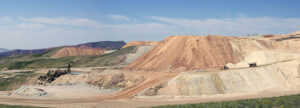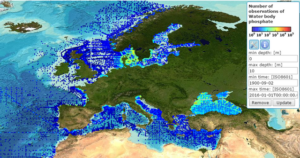Phosphorus is essential for life on Earth, says Chris Slootweg on his profile page of the University of Amsterdam. It is an essential element in global agriculture. It plays a prominent role in modern science and technology: organophosphorus compounds have wide-ranging applications. But mankind uses phosphorus inefficiently and unsustainably; whereas resources are limited. There are no alternatives to the use of phosphates as a fertilizer. How can we turn this situation around?

Reuse and recycling
With his team, Slootweg develops pathways for reuse and recycling of phosphorus compounds; a project intended to produce better sustainability and less spillage of these compounds. As they say, they work towards a ‘sustainable phosphorus chemistry on a large scale, introducing recycling, clean, and ‘cradle-to-cradle’ technologies as ground-breaking changes in the field to ensure the continued beneficial use of phosphorus.’ Through their work they intend to bring about a paradigm shift; particularly by developing efficient redox cycling methods to convert waste phosphates directly into high-value products.
On this site, we paid attention to the phosphate problem a number of times. Already ten years ago, we called phosphate recovery an ‘urgent matter’. A few years later, we wrote that phosphate recovery isn’t primarily a technological problem. It’s mainly a question of social organization. And a year later, we paid attention to the geopolitical aspects of the phosphate problem. ‘Modern agriculture requires increasing amounts of phosphate fertilizer,’ we wrote; ‘and as recycling levels are low, the world uses vast amounts of phosphate rock.’

Phosphorus depletion
In his report ‘Phosphorus depletion: an invisible crisis?’, Bert Smit of Wageningen University discusses our options. ‘Phosphorus (P)’ he writes, ‘is one of the major nutrients plants need to convert solar energy and carbon dioxide into the organic compounds necessary to sustain life on earth. The low concentration of P in most agricultural soils, alongside its low solubility, makes P a limiting factor for plant growth nearly everywhere in the world.’ In the past therefore, P recovery was essential. Organic waste streams, litter and excreta from humans and animals were collected and returned to the land. Still a common practice in many parts of the world. But since the second hall of the 19th century, mining of phosphate rock allowed the development of P fertilizer. Together with the development of nitrogen fertilizer, this boosted agricultural productivity. The use of manure and other organic waste streams was no longer needed. In many countries, it was wasted.
But global supplies of phosphate rock are limited. Whereas phosphate is an essential and non-renewable resource for global food production. ‘These days, according to the UK Centre for Ecology & Hydrology in The Conversation, ‘the cycle is broken. Each year 220 million tonnes of phosphate rocks are mined, but only a negligible amount makes it back into the soil. Crops are transported to cities and the waste is not returned to the fields but to the sewage system, which mainly ends up in the sea. A cycle has become a linear process.’ According to Cordell et al, scarcity has developed at many levels: that of management (resulting in a low efficiency from mine to food), the economy (fertilizer not available to all farmers), the institutional level (lack of governance structures) and that of geopolitics (with a limited number of countries controlling phosphate reserves).
Our phosphorus future
Recently, scientists published the report ‘Our Phosphorus Future’, described as ‘the most comprehensive global analysis of the challenges and possible solutions to the phosphorus crisis to date.’ It has been written by a team of 40 international experts from 17 countries led by the UK Centre for Ecology & Hydrology (UKCEH) and the University of Edinburgh, and is supported by the United Nations Environment Programme (UNEP).
The report calls on governments across the world to adopt a ‘50, 50, 50’ goal: a 50 percent reduction in global pollution of phosphorus and a 50 percent increase in recycling of the nutrient by the year 2050. Recommendations in “Our Phosphorus Future” include:
- integrating livestock and crop production so phosphorus in animal manure is applied to crops, reducing the demand for chemical fertilizers;
- moving towards more sustainable diets, which would reduce the amount of phosphorus needed to grow animal feed;
- reducing global food waste, meaning less demand for crops and animal products, and therefore phosphorus (a recent UNEP report estimated global food waste from households, retail establishments and the food service industry totals 931 million tons each year);
- improving wastewater treatment to remove phosphorus from sewage, so it can be reused and does not enter lakes and rivers.
Effects
The report’s authors estimate major benefits from the adoption of the ‘50, 50, 50’ goal. It would create a food system that would provide enough phosphate to sustain over four times the current global population. It would save farmers nearly US $20 billion in annual phosphate fertilizer costs. And on top of that, it would avoid a projected yearly clean-up bill of over US $300 billion to remove phosphorus from polluted water courses.
But so far, the world has not adopted such a course. Farmers in rich countries can afford to keep on buying phosphate fertilizer. And technologies for collecting and recovering phosphate are too expensive. The world continues to be on the depletion track. A track from which there is no way back.
Interesting? Then also read:
Phosphate and phosphorus, use it wisely
Circular agriculture, the model of the future
Micronutrients, small but essential
